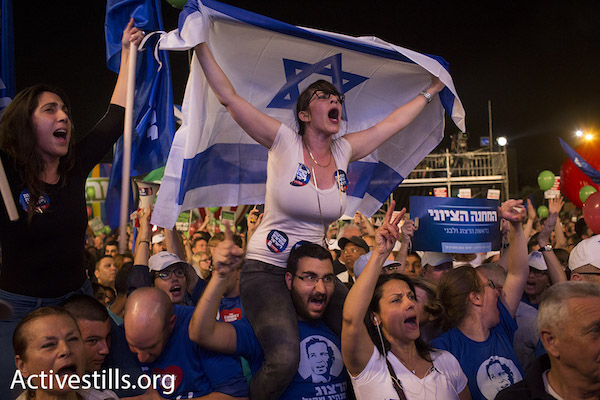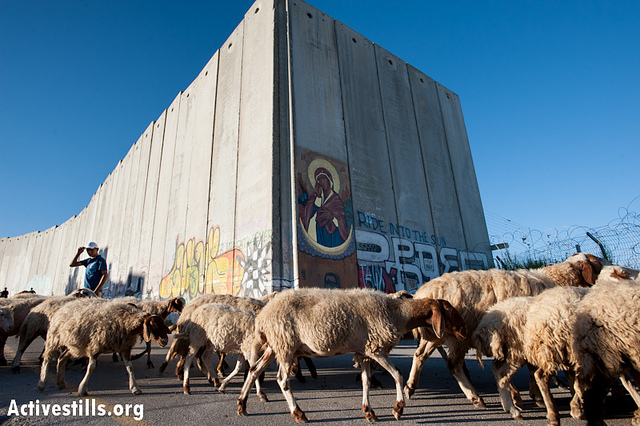This isn’t a choice between ‘Jewish or democratic’ — the only question is whether Israel can still become a true democracy.

For some years, the political center-left in Israel has committed itself to the idea of a Jewish and democratic state. For these mostly secular and traditional people, “Jewish” used to mean some sort of cultural character, and democracy meant free and fair elections.
This political camp is deeply committed to the balance between those two ideas and believes that when one overtakes the other, we are lost.
Thus if Israel is too “Jewish,” it risks becoming a halakhic caliphate that makes a secular or flexible lifestyle impossible. Sunday’s revelation that the Education Ministry froze funds intended for organizations promoting religious pluralism is one more worrying sign.
The center-left is just as worried about too much democracy, whose natural end-point is full equality of individual and political rights, representation and opportunity regardless of ethnicity. But liberal Zionists do want Hannukah and they don’t want an Arab prime minister, though they feel impolite saying so. So they support democracy but also its limitation to ensure Jewish political, institutional, cultural, and economic dominance.
To resolve this contradiction the center-left has embraced the cause of a Jewish majority in Israel. Some years ago I asked center-left focus groups what a “Jewish state” meant to them and a consensus quickly emerged: “it boils down to a Jewish majority” — since we agree on so little else about what “Jewish” might mean. Thus the idea of “Jewish and democratic” is more accurately translated to “Jewish majority and a democratic state.”
When it became clear that a peace process didn’t automatically translate into security, the “Jewish and democratic” narrative replaced “peace for security” as the Left’s major justification for the two-state solution, in which an end to the occupation and a return to 1967 borders would guarantee greater numbers of Jews in the state.

Then the Right created one state. With some help from the Left over the years — especially when it came to settlements — the Right has erased the Green Line, and made it unlikely Israel will ever extract itself from the West Bank. The old ‘67 borders have stretched their limbs, normalizing the large settlements blocs outside of Jerusalem, extending conceptually to include Ariel, a settlement of 18,000 people located deep inside the West Bank. Not a day goes by without talk of annexing the West Bank’s Area C (under full Israeli military and civil control) – including from cabinet ministers such as the deputy foreign minister, education and agriculture ministers. It’s only a small leap to annexing everything.
Today Israel controls roughly 6 million Palestinians, but only 1.7 million of them enjoy full civil rights — on paper, at least. All the rest are under complete Israeli control — including Gaza, as a UN Commission following the last war pointed out. The U.S. ambassador let Israel off easy by observing its different standards of law enforcement for Israeli citizens and Palestinian subjects. Physical segregation is the reigning ethos.
What’s odd is that certain voices continue to portray this present as if it is still in the future. An otherwise laudable New York Times editorial this weekend observed that the two-state solution might just be threatened due to the facts on the ground – in language so tentative that the writers appear to be describing some other land.
Similarly, the Israeli-Jewish political center and left-wing camps continue to address the fear of losing a Jewish majority sometime in the future. It is as if we are middle-aged folks who cannot look in the mirror to see that we’ve thickened at the middle and our youthful size six clothes have been slowly replaced. The body filling up the current size 10 has changed: the Jewish and Arab populations are roughly equal. It doesn’t matter whether we lament or celebrate this fact, and it hardly even matters who is to blame for how we got here.
What matters is the temporal truth: the Jewish majority is gone in the present, not the future. The distinction between the West Bank and “Israel proper” is gone.
So is there any way in which Israel is still a Jewish state? Absolutely. It is Jewish in terms of political, military, civic and economic power. It is Jewish in terms of narratives, through education and culture and the preferential treatment afforded to those born Jewish. It is Jewish in terms of those who makes laws and policy, Jewish in terms of who enjoys legal protections, and of course standards of law enforcement, as the ambassador correctly observed — a factual observation that Israel’s leaders do not wish to be spoken.
In other words, Israel is Jewish in all the ways that it is unequal. “Jewish state” no longer means Jewish majority. It has become a euphemism for permanent institutionalized inequalities, ethnic violence against Palestinians that flows directly from those institutions, and segregation.
The relevant question for the future is no longer whether the two-state solution is viable. It is whether the various territories under Israeli control will remain non-democratic – segregated and unequal – or turn to democracy. There are still robust institutions of a democratic state somewhere between the river and the sea, but they are increasingly compromised. Unless political leaders embrace the erstwhile ambition of being a democracy in the Middle East, they won’t last.
This isn’t a choice between “Jewish or democratic.” That equation has become a psycholinguistic mechanism of telling lies to ourselves. The only question is “democratic or non-democratic.”


